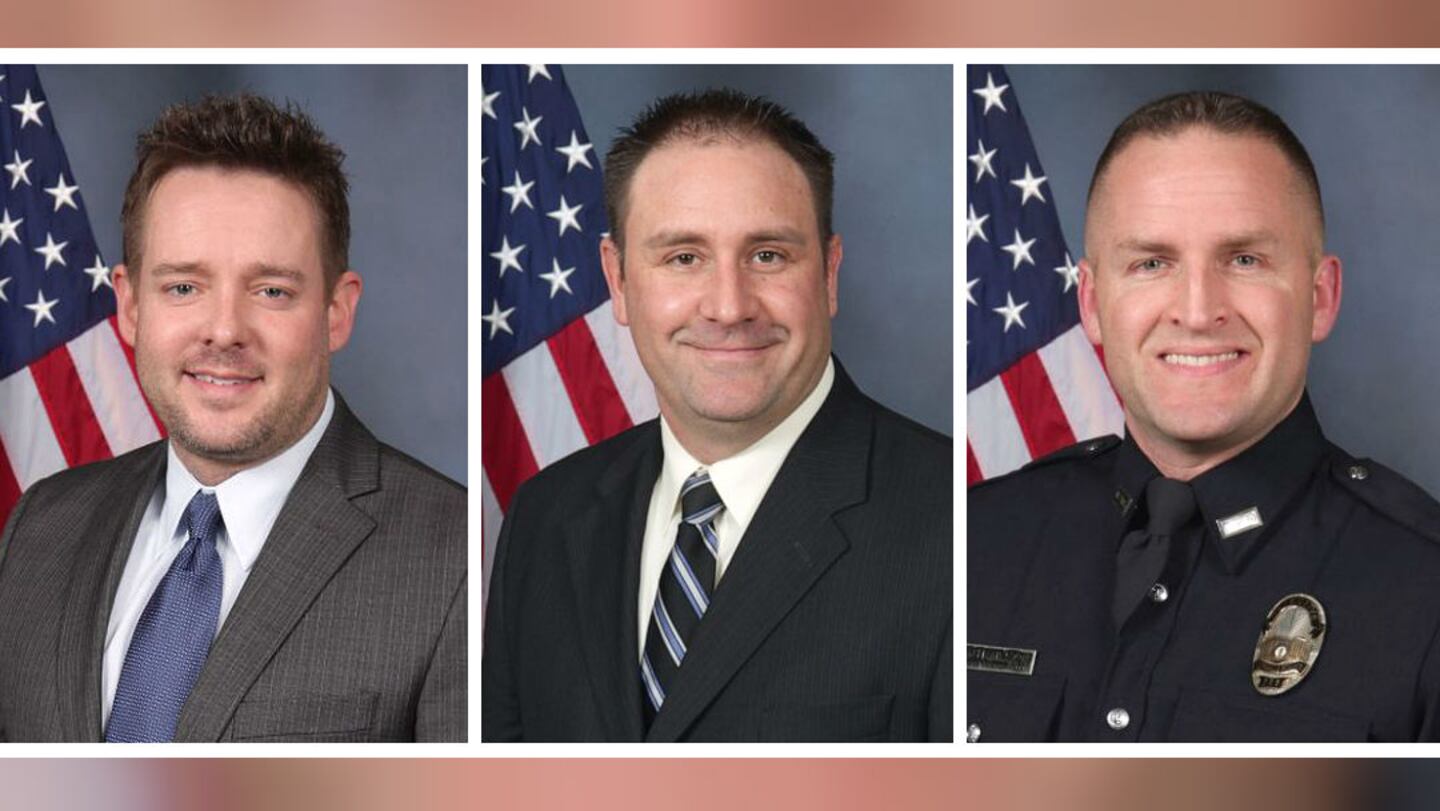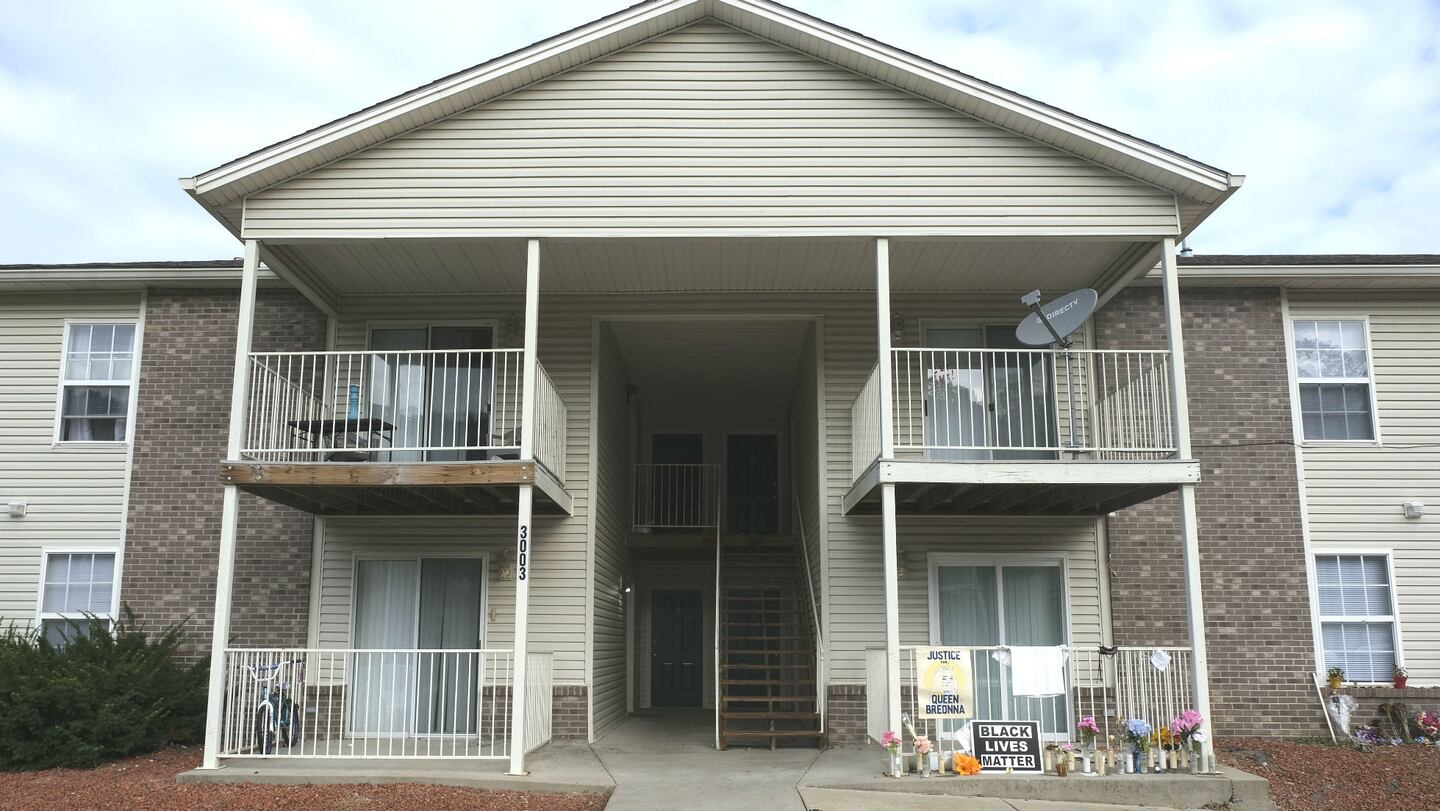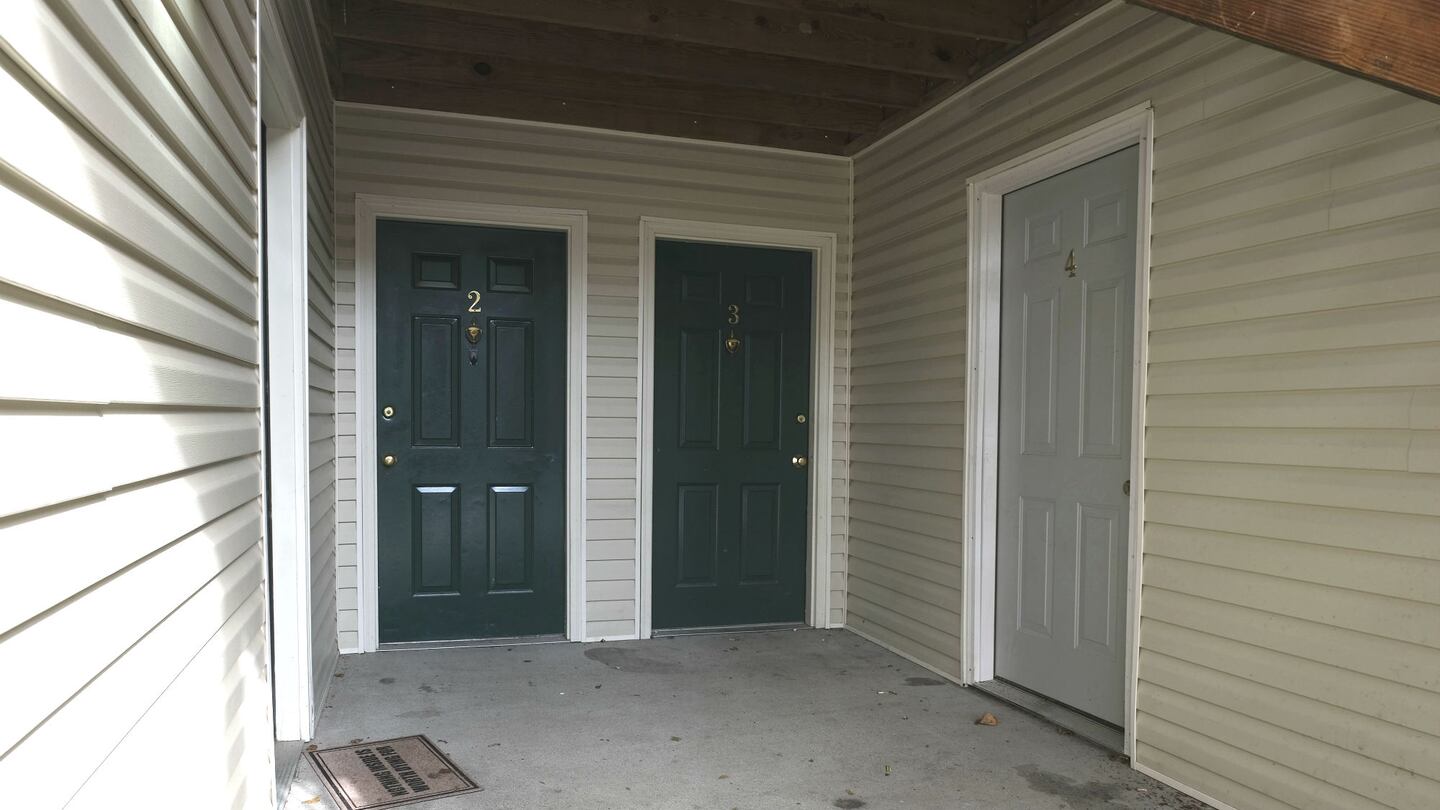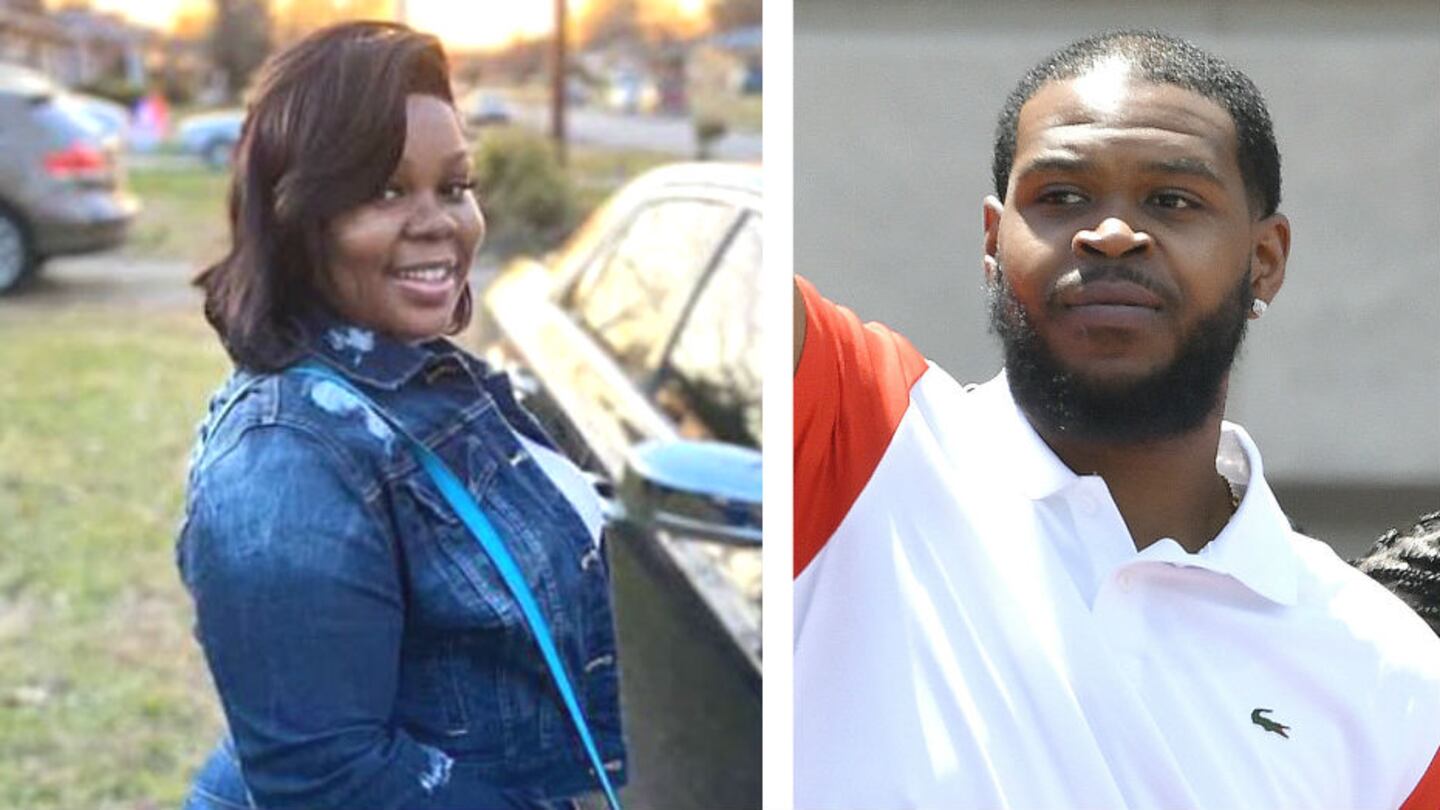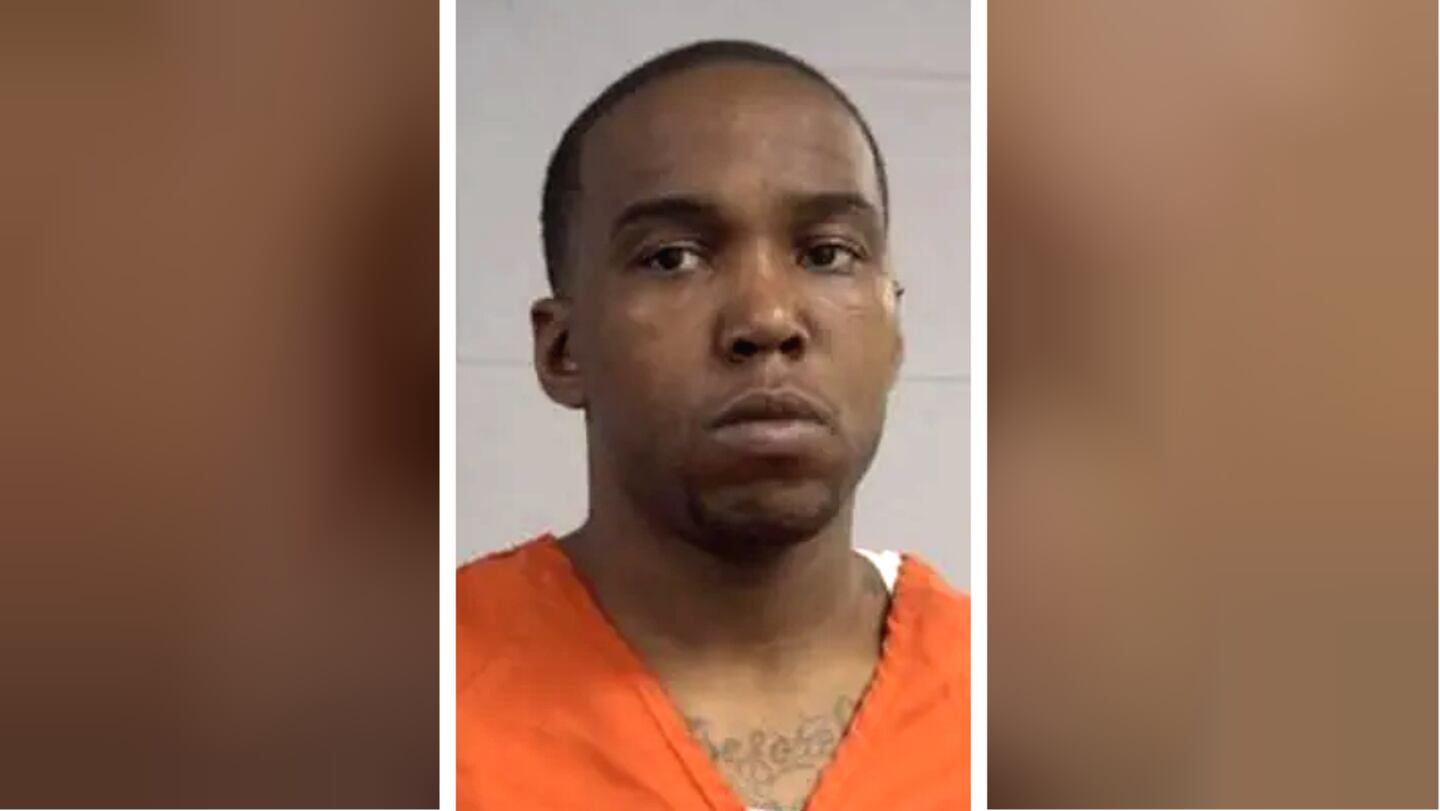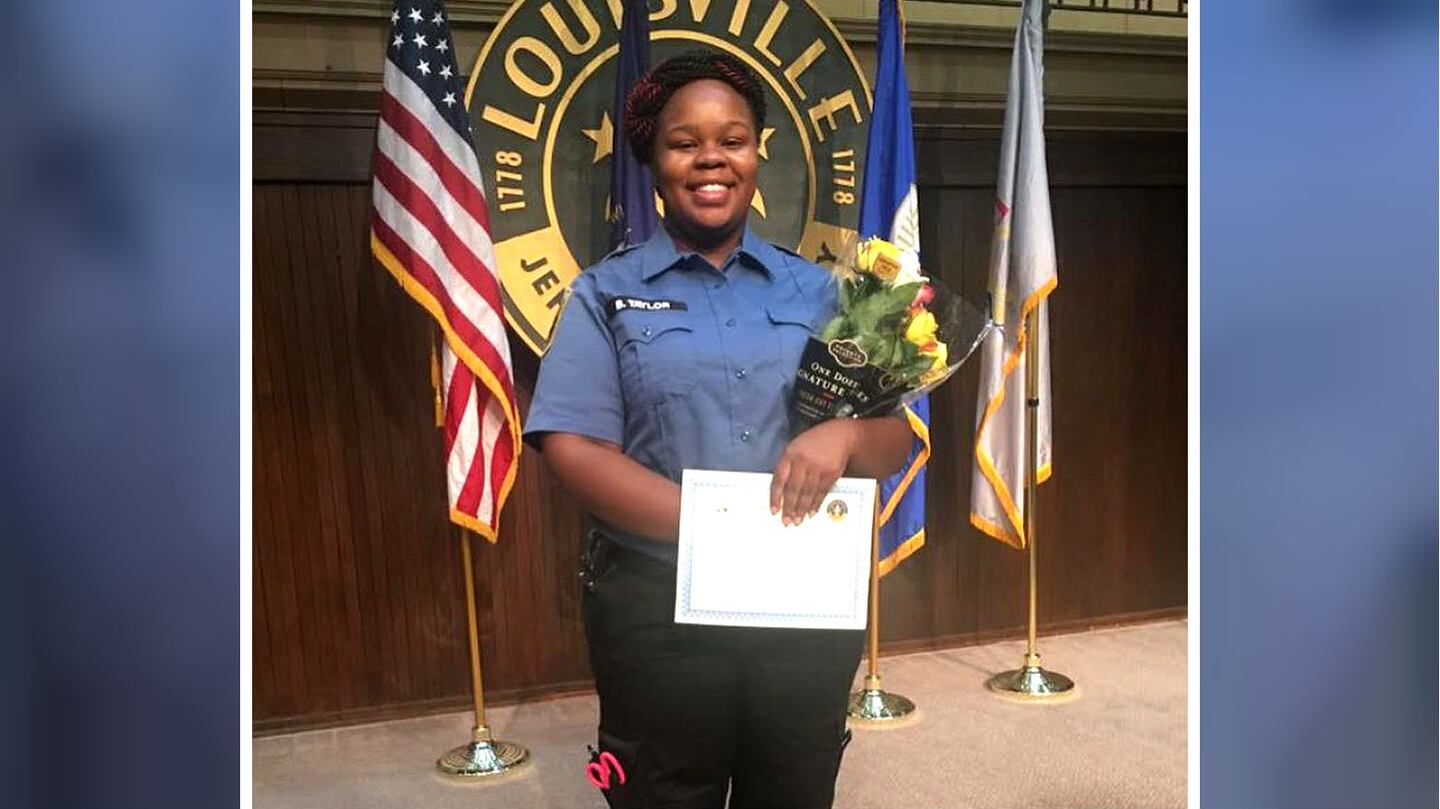LOUISVILLE, Ky. — The fatal March 13 police shooting of Breonna Taylor, an unarmed Black woman gunned down in her Louisville home, has sparked anger, launched protests and ignited calls for police reform across the U.S.
Unfortunately, not all the information reported about the night Taylor died, or the drug investigation that ultimately led to her death, has been accurate. In some instances, early reports of what took place have never been corrected.
Attorneys for Taylor’s family initially said she had been shot at least eight times, for example. That number was later downgraded by authorities to five or more.
Kentucky Attorney General Daniel Cameron said Wednesday that Taylor was shot six times.
In other instances, supporters on both sides of the debate have unwittingly, or sometimes purposely, spread misinformation about the 26-year-old’s killing at the hands of three Louisville police officers.
Cameron announced Wednesday that none of the three would face charges in Taylor’s death. One man, former Detective Brett Hankison, was indicted on three charges of wanton endangerment.
Hankison’s charges stem not from the shooting of Taylor, but from his firing several bullets into at least one adjoining apartment where neighbors were asleep. Hankison was fired June 19 for “wantonly and blindly” firing 10 rounds into Taylor’s apartment.
The former detective left his colleagues at the door of Taylor’s apartment and ran around to the patio area, where he fired into the sliding glass door and a window, both of which were covered with blinds. His actions violated a departmental policy requiring an officer to have a line of sight before firing at a suspect.
No additional state criminal charges are expected against any of the officers. An FBI investigation into Taylor’s death is ongoing.
Watch the Kentucky AG’s announcement below, courtesy of the Louisville Courier Journal.
Louisville officials last week settled for $12 million a wrongful death lawsuit filed by Taylor’s family. As part of the settlement, which is the largest in Louisville Police Department history, the city agreed to implement changes to the police department to prevent similar tragedies in the future.
As protests continue in the aftermath of Cameron’s announcement and the settlement, so does misinformation about the case. Below, we clear up six claims about Taylor and what happened the night she was killed.
Claim: Police entered the wrong apartment
Critics, including lawyers for Taylor’s family, stated early on that Hankison, Sgt. Jonathan Mattingly and Detective Myles Cosgrove broke down the door of the wrong apartment the night Taylor was slain. Ben Crump, a civil rights attorney involved in the Taylor case, wrote on Twitter on May 11 that police “had the wrong address AND their real suspect was already in custody.”
Search warrants released by police officials show, however, that Taylor’s apartment was a target of the drug investigation into her former boyfriend, Jamarcus Glover. The warrant, obtained by Louisville police Detective Joshua Jaynes the day before the shooting, identified the location of the search as Taylor’s apartment, Number 4, at St. Anthony Gardens on Springfield Drive.
Warrants were also obtained for multiple other locations, including three adjacent houses on Elliott Avenue that authorities said were the sites of drug trafficking.
The warrant for Taylor’s apartment sought any drugs or money believed to be proceeds from those drug deals. It also sought any safes or guns used to protect the product or its proceeds, as well as any paperwork that could be evidence of the criminal enterprise.
As evidence of Taylor’s alleged involvement, Jaynes listed surveillance on Jan. 16 in which Glover was spotted going into Taylor’s apartment and coming out with a suspected U.S. Postal Service package. Glover then drove to a “known drug house,” the warrant said.
Jaynes claimed he had verified through a U.S. Postal Inspector that Glover had been receiving packages at Taylor’s home. He said he had also observed Taylor’s white 2016 Chevy Impala parked several times in front of a home on Elliott Avenue.
The house at 2424 Elliott Ave., a known “trap house,” was the primary target of the drug investigation.
Jaynes was placed on administrative reassignment, however, after questions were raised about the validity of the warrant to search Taylor’s apartment. A Louisville-based postal inspector told WDRB that Louisville detectives did not use his office to confirm any of the suspects in the drug case were receiving packages at Taylor’s home.
Read the search warrant below, courtesy of the Courier Journal.
A separate law enforcement agency did seek information on Taylor’s address in January, but Inspector Tony Gooden said his office found no sign of suspicious mail going to Taylor’s apartment.
“There’s no packages of interest going there,” Gooden told the news station.
He said it was possible but unlikely that police asked a postal inspector from another jurisdiction for aid, WDRB reported. If they had, Gooden said his office would have been notified by the outside jurisdiction.
The outcome of the investigation into Jaynes' statements has not been made public.
Police found no drugs or cash hidden at Taylor’s apartment after she was killed.
Verdict: False
Claim: The officers failed to properly announce themselves
The warrant for Taylor’s home was secured as a “no-knock” warrant, which allows police to enter a home without announcing themselves. Mattingly said in his recorded statement to investigators, however, that he and his team were told to knock on the door and announce themselves.
By the time they were ready to search Taylor’s home, drug agents had determined Taylor was a “soft target,” meaning she was neither a threat nor a major player in the drug probe. An image Commonwealth’s Attorney Tom Wine shared with the Courier Journal shows a whiteboard on which drug agents planned the raids.
While the Elliott Avenue locations were listed under “no-knock warrants,” Taylor’s address was listed under “knock and announce.”
“They said they did not believe she had children or animals, but they weren’t sure,” Mattingly said. “Said she should be there alone because they knew where their target (Glover) was.”
Listen to Jonathan Mattingly’s interview with detectives below, courtesy of WHAS in Louisville.
What the officers did not know is that Taylor’s boyfriend, Kenneth Walker, was spending the night. Walker told detectives that he and Taylor had watched a movie, which she dozed off on.
Her last words to him before falling asleep were to ask him to turn off the TV.
There have been conflicting statements on whether the officers announced themselves as they broke down Taylor’s door. Walker himself confirms that they did knock on the door that night.
He and Taylor awoke to the knocking, and she asked who was at the door, he said. There was no response. Moments later, Walker said, the door was coming off at the hinges.
Listen to Kenneth Walker’s interview with detectives below, courtesy of WHAS.
Walker, who thought it was a home invasion, grabbed his legal handgun and fired a shot toward the intruders. Police officials have said that bullet struck Mattingly in the leg, nearly severing the officer’s femoral artery.
Mattingly, Hankison and Cosgrove unleashed a barrage of more than 20 bullets, killing Taylor.
Cameron said during Wednesday’s news conference that a witness claimed to have heard the officers announce themselves. Both Taylor’s lawyers and The New York Times found at least 11 neighbors, however, who said they did not hear the officers announce that they were the police.
Walker’s attorney, Steven Romines, told CNN on Wednesday that the neighbor to whom Cameron referred initially said he did not hear the officers announce themselves. It was only after a third interview that he said he heard the announcement.
Walker, who was initially charged with attempted murder for shooting Mattingly, has filed a civil lawsuit claiming false arrest. The charges against him were later dropped.
Verdict: Uncertain
Steven Romines, attorney for Breonna Taylor’s boyfriend, claims the prosecutors in the case “cherry-picked” evidence.
— CNN (@CNN) September 24, 2020
“They presented whatever evidence they chose … to get the indictment that they wanted and it is a tragedy." https://t.co/03xm6HFznr pic.twitter.com/wTr3JFaBa1
Claim: Officers arrested their actual target hours before Taylor was shot
As discussed above, critics on social media claimed that Glover, the main target of the drug probe, had been arrested sometime before officers broke down Taylor’s door.
In his recorded statement to investigators, Mattingly said the warrants were served at the same time at the Elliott Avenue homes and Taylor’s apartment on Springfield Drive. Court records obtained by the Louisville Courier Journal show that the search warrant was executed at Taylor’s apartment at 12:40 a.m. on March 13.
Glover’s arrest citation lists the time of the offense as 12:40 a.m., but his arrest was stamped 2:43 a.m., the newspaper reported.
Sam Aguiar, an attorney representing Taylor’s family, alleged in the lawsuit, however, that police initially recorded the time of Glover’s arrest as around midnight. He accused police officials of changing that time to make it match the time of the raid at Taylor’s apartment.
Verdict: Uncertain
Claim: Taylor was asleep in her bed when she was killed
According to Walker, he and Taylor were asleep in bed when the banging on the door began. Walker, who thought it might have been Glover at the door, said he was afraid.
Taylor twice called out: “Who is it?” They heard no response, Walker told investigators.
Both she and Walker got up and threw some clothes on as they stepped out of the bedroom, he told investigators.
Again, Taylor called out “at the top of her lungs,” asking who was at the door. By that time, Walker said, he was also demanding to know who was there.
Taylor was standing in her hallway when the door was broken down and the gunfire began. Cameron said Wednesday that she was shot six times.
She fell to the floor of the hallway. Crime scene photos made available for the Hulu/FX documentary, “The New York Times Presents: The Killing of Breonna Taylor,” shows blood spatter on the walls and the blood-soaked carpet where Taylor lay after she was killed.
Though the Jefferson County coroner has said that Taylor likely died within a minute of being shot, Walker claimed that he could hear her coughing and struggling to breathe for at least five minutes. In his 911 call following the shooting, he is heard weeping over Taylor’s body.
“I don’t know what’s happening,” a distraught Walker says. “Someone kicked in the door and shot my girlfriend.”
Listen to portions of Walker’s 911 call below in a preview for the Hulu/FX documentary, which aired Sept. 4.
Walker also had time to call Taylor’s mother before police ordered him out of the apartment and, eventually, checked on Taylor’s status.
“(Officers are) yelling like, ‘Come out, come out,’ and I’m on the phone with her,” Walker said in a police interview hours after the shooting. “I’m still yelling ‘help’ because she’s over here coughing and, like, I’m just freaking out.”
Records obtained by the Courier Journal show that Taylor lay untouched by police or paramedics for more than 20 minutes after she was shot.
Verdict: Partially true
Claim: Taylor lived with a drug dealer and was herself involved in dealing
Critics on social media have said that if Taylor had not been living with a drug dealer or been involved in dealing, she would not have been killed.
The truth is, it is Taylor’s ex-boyfriend, Glover, who is an alleged drug dealer. Walker, who was Taylor’s boyfriend at the time of her death, has no history of drug-related crimes.
Neither did Walker live at Taylor’s apartment at St. Anthony Gardens. Taylor shared the home with her 20-year-old sister, Juniyah Palmer, who was out of town the night of the shooting.
Aguiar initially told the Courier Journal that Taylor and Glover dated two years before her death and maintained a “passive” friendship since their breakup.
An internal police memo leaked to the newspaper indicated that Taylor still maintained more extensive ties with Glover. Transcripts of recorded jail calls made by Glover show that he called Taylor Jan. 3 after an arrest and asked her to contact one of his co-defendants about bail money.
Taylor told Glover the man was “already at the trap,” slang for a drug house. Glover asked her to be on standby to pick him up if he made bail, the Courier Journal reported.
“Love you,” Glover told her as the call ended.
“Love you too,” Taylor responded.
In a jail call Glover made hours after his March 13 arrest and Taylor’s shooting death, he told his girlfriend that Taylor was holding cash for him and that she’d been “handing all (his) money.”
No cash was found at Taylor’s home after her death, however.
In an exclusive Aug. 26 interview with the Courier Journal, Glover denied that Taylor ever was involved in selling drugs.
“The police are trying to make it out to be my fault and turning the whole community out here, making it look like I brought this to Breonna’s door,” Glover said. “There was nothing never there or anything ever there, and at the end of the day, they went about it the wrong way and lied on that search warrant and shot that girl out there.”
The Washington Post also pointed out that Louisville police officials themselves have described the leaked memo as an early, unverified draft written in the middle of the investigation.
Louisville Mayor Greg Fischer said after the Courier Journal’s report on the memo that the leak was an effort to "sway opinion and impact the investigation.
“Breonna Taylor’s death was a tragedy. Period,” Fischer said, according to NBC News. “It is deeply reckless for this information, which presents only a small fraction of the entire investigation, to be shared with the media while the criminal process remains ongoing.”
Verdict: False
Listen to Juniyah Palmer talk to VICE News about her sister.
Claim: Taylor was an EMT at the time of her death
Taylor has often been described as an emergency medical technician, or EMT.
Personnel records show that was not the case at the time of her death.
According to WAVE in Louisville, Taylor worked for the city from January to November of 2016. She became an EMT that June and worked in that capacity for about five months.
The documents viewed by the news station indicated she resigned in November, and a box on her termination form states “do not rehire.” The city declined to say why that box was checked.
Her family has said she remained a medical worker after her time as a paramedic, working as an emergency room technician. She planned to study to become a nurse.
At the time of her death, Taylor was working as an ER tech at both the University of Louisville Health’s Jewish Hospital East and Norton Healthcare.
Verdict: False
Cox Media Group

